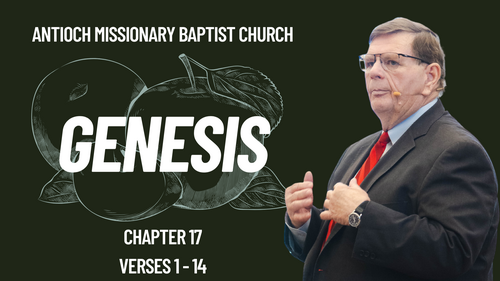Sermon Takeaway 10/05/2025

The Power of Faith, Mercy, and Righteousness: Lessons from Abraham's Journey

In the bustling pages of Genesis, we find a story that resonates deeply with our modern struggles and spiritual journeys. It's a tale of faith rewarded, fears overcome, and the astounding mercy of God. As we delve into the 18th chapter of Genesis, we uncover timeless truths that challenge and inspire us today.
Picture this: Abraham, the man of faith, sitting outside his tent in the heat of the day. Suddenly, he lifts his eyes to see three mysterious visitors. In a display of Middle Eastern hospitality, Abraham rushes to welcome them, offering water for their feet and a meal to refresh them. Little does he know, he's entertaining divine guests – the Lord himself and two angels.
This encounter marks a pivotal moment in Scripture – the first recorded face-to-face meeting between God and man. It's a powerful reminder that when we walk in faith, as Abraham did, we open ourselves to extraordinary encounters with the divine. While we may not see God face-to-face today, those who trust in Christ can experience His presence, fellowship, and communion in profound ways.
This encounter marks a pivotal moment in Scripture – the first recorded face-to-face meeting between God and man. It's a powerful reminder that when we walk in faith, as Abraham did, we open ourselves to extraordinary encounters with the divine. While we may not see God face-to-face today, those who trust in Christ can experience His presence, fellowship, and communion in profound ways.
As the story unfolds, we witness God's intention to bless and strengthen Sarah, Abraham's wife. At 89 years old, Sarah had long given up hope of bearing a child. When she overhears the visitor's promise that she'll have a son within a year, she laughs silently to herself. It seems impossible – after all, both she and Abraham are well past their prime.
But God, in His omniscience, hears Sarah's inner thoughts and challenges her disbelief. "Is anything too hard for the Lord?" He asks. This poignant question echoes through the ages, reminding us that with God, all things are possible. Sarah's laughter of doubt would later turn to joy when she indeed bears a son, aptly named Isaac – which means "laughter."
But God, in His omniscience, hears Sarah's inner thoughts and challenges her disbelief. "Is anything too hard for the Lord?" He asks. This poignant question echoes through the ages, reminding us that with God, all things are possible. Sarah's laughter of doubt would later turn to joy when she indeed bears a son, aptly named Isaac – which means "laughter."
This part of the narrative beautifully illustrates God's intimate knowledge of our hearts and His desire to address our deepest fears and doubts. Like Sarah, we often hide our innermost thoughts and anxieties, believing them to be beyond help. But the God who knew Sarah's silent laughter knows our unspoken fears too. He invites us to bring them into the light, to let Him minister to us and fill our lives with His presence rather than our anxieties.
As the story progresses, we witness a remarkable dialogue between God and Abraham that reveals the depth of God's mercy and Abraham's growing faith. God shares His intention to investigate and potentially destroy the wicked cities of Sodom and Gomorrah. Instead of remaining silent, Abraham boldly intercedes on behalf of any righteous people who might be living there.
What follows is a fascinating negotiation. Abraham asks if God would spare the cities for the sake of fifty righteous people, then gradually lowers the number – 45, 40, 30, 20, and finally 10. Each time, God agrees, demonstrating His incredible mercy and willingness to withhold judgment for the sake of even a few righteous souls.
As the story progresses, we witness a remarkable dialogue between God and Abraham that reveals the depth of God's mercy and Abraham's growing faith. God shares His intention to investigate and potentially destroy the wicked cities of Sodom and Gomorrah. Instead of remaining silent, Abraham boldly intercedes on behalf of any righteous people who might be living there.
What follows is a fascinating negotiation. Abraham asks if God would spare the cities for the sake of fifty righteous people, then gradually lowers the number – 45, 40, 30, 20, and finally 10. Each time, God agrees, demonstrating His incredible mercy and willingness to withhold judgment for the sake of even a few righteous souls.
This exchange shatters the misconception of God as a vengeful deity eager to punish. Instead, we see a God who is "not willing that any should perish, but that all should come to repentance" (2 Peter 3:9). He takes no pleasure in judgment but extends mercy wherever possible.
Abraham's persistence in intercession also provides a powerful model for us. It shows us the impact our prayers can have and encourages us to boldly approach God on behalf of others, even those who seem far from Him.
Tragically, not even ten righteous people could be found in Sodom, leading to its ultimate destruction. This sobering reality challenges us to consider our impact on the world around us. Are we, like Lot (Abraham's nephew living in Sodom), ineffective in influencing those around us for good? Or are we salt and light, preserving and illuminating our communities with God's truth and love?
Abraham's persistence in intercession also provides a powerful model for us. It shows us the impact our prayers can have and encourages us to boldly approach God on behalf of others, even those who seem far from Him.
Tragically, not even ten righteous people could be found in Sodom, leading to its ultimate destruction. This sobering reality challenges us to consider our impact on the world around us. Are we, like Lot (Abraham's nephew living in Sodom), ineffective in influencing those around us for good? Or are we salt and light, preserving and illuminating our communities with God's truth and love?
The story of Sodom's judgment reminds us that while God is merciful, He is also just. There will come a time when His patience ends and judgment falls. This urgency should compel us to action – to share the good news of salvation through Christ with those around us before it's too late.
As we reflect on this rich passage of Scripture, several key lessons emerge:
In a world that often feels chaotic and hopeless, these ancient stories remind us of timeless truths. They paint a picture of a God who is intimately involved in human affairs, who hears our prayers, knows our hearts, and extends mercy beyond our imagination.
As we reflect on this rich passage of Scripture, several key lessons emerge:
- Faith opens the door to divine encounters. When we trust God, we position ourselves to experience His presence in remarkable ways.
- Nothing is impossible with God. Our limitations are not His limitations. He delights in doing the "impossible" to showcase His power and love.
- God knows our deepest thoughts and fears. We can bring everything to Him, trusting in His care and ability to strengthen us.
- Intercessory prayer is powerful. We are called to stand in the gap for others, appealing to God's mercy on their behalf.
- God is both merciful and just. His patience is vast, but not endless. This should motivate us to share His love and truth with urgency.
- Our lives should impact others for good. We are called to be preserving and illuminating influences in a dark world.
In a world that often feels chaotic and hopeless, these ancient stories remind us of timeless truths. They paint a picture of a God who is intimately involved in human affairs, who hears our prayers, knows our hearts, and extends mercy beyond our imagination.
Let us, like Abraham, grow in faith and boldness. Let us overcome our fears and doubts, trusting in the God for whom nothing is too difficult. And let us live with purpose and urgency, knowing that our lives can make a difference in this world that so desperately needs to encounter the living God.
As we go about our days, may we keep our spiritual eyes open, ready for divine appointments. May we bring our deepest fears to the One who already knows them. And may we persistently intercede for our communities, believing that God's mercy can transform even the darkest situations. For in doing so, we participate in the ongoing story of God's redemptive work in the world – a story in which we all have a vital part to play.
As we go about our days, may we keep our spiritual eyes open, ready for divine appointments. May we bring our deepest fears to the One who already knows them. And may we persistently intercede for our communities, believing that God's mercy can transform even the darkest situations. For in doing so, we participate in the ongoing story of God's redemptive work in the world – a story in which we all have a vital part to play.
Watch the full sermon here:
Recent Takeaways
Archive
2026
2025
March
September
October
November

No Comments